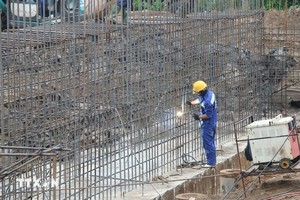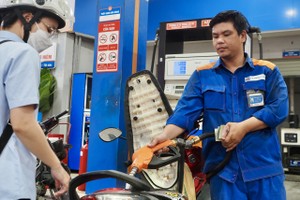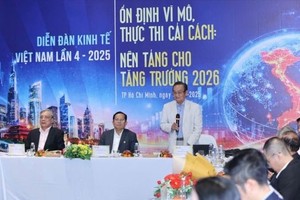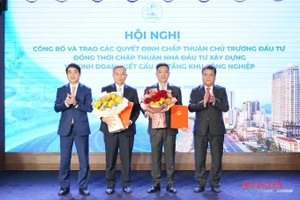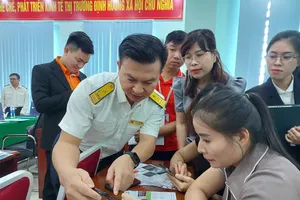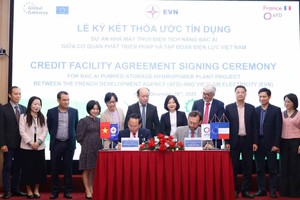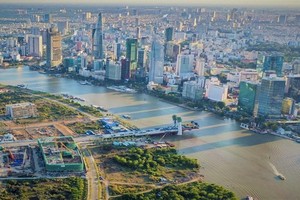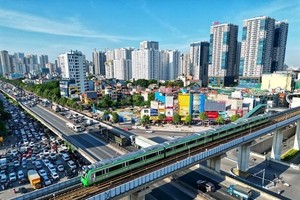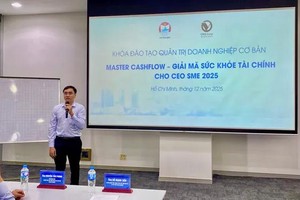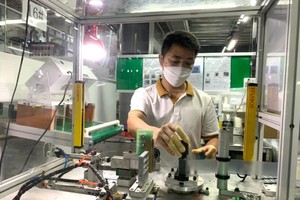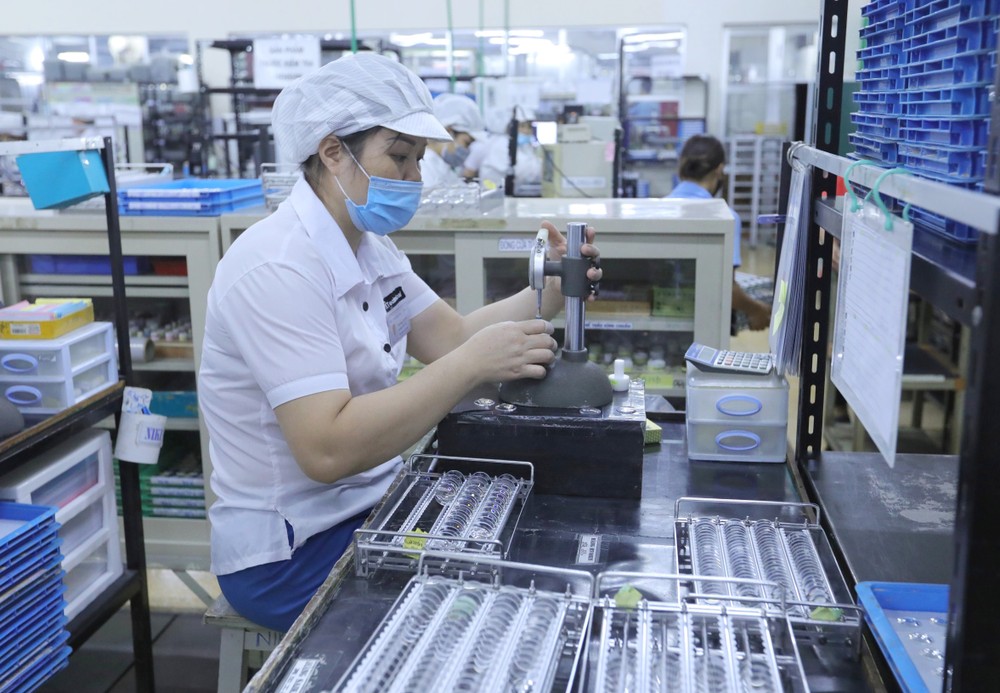
Economist Vo Tri Thanh said that though the negative effects of wars and climate change still exist, Vietnam’s socio-political stability is the most important element in attracting investments; plus, the Southeast Asian country has other advantages which are also good points in the eyes of investors.
The end of the tax race to the bottom
The race to the bottom on corporate tax has seen governments across the globe slash corporate tax bills in an attempt to attract investment.
The amount of registered capital is an important factor because it is an indicator of the international investment community's interest in Vietnam, but the amount of disbursed capital is even more important. The disbursed amount is the most convincing element to encourage investors who are considering putting additional money into the country.
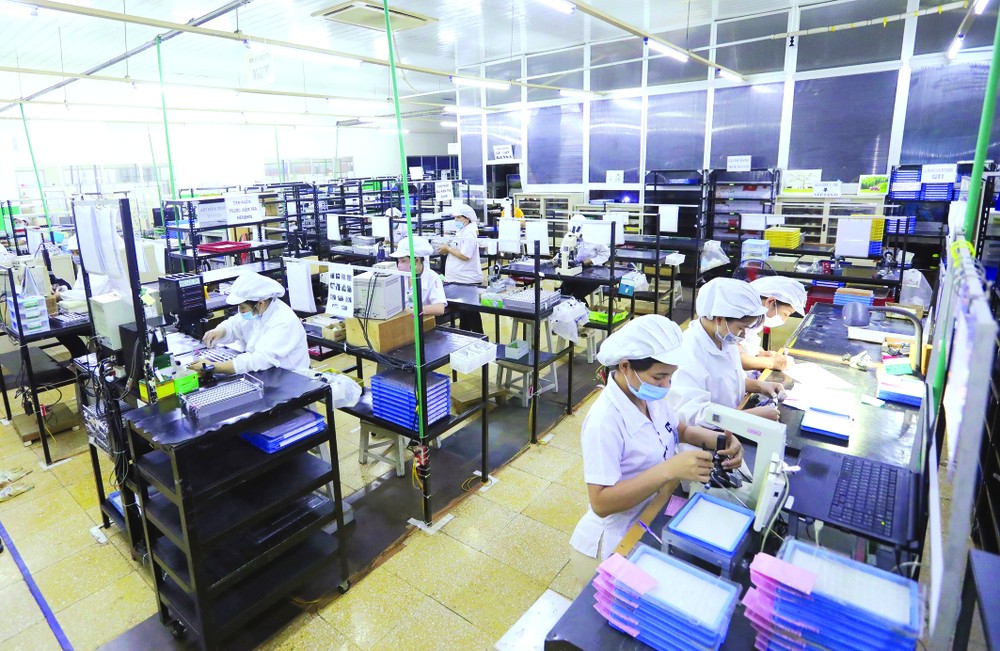
More carefully, the economist advised to consider where capital flows to and how much added value is created as he thinks that with the current capacity of the economy to absorb capital, the foreign investment situation in 2023 was positive, in 2024 it would be brighter, although it is unlikely to have a great leap.
Despite the prediction about the difficult world situation in 2024, the National Assembly’s decision will be an important factor that will certainly have an impact on foreign investment flows into Vietnam in 2024.
At the last session of 2023 the National Assembly approved Resolution No. 39/2023/UBTVQH15 on applying additional corporate income tax in line with the set global minimum tax of 15 percent from 2024. Under this resolution that takes effect on 1 January 2024, large multinationals enjoying preferential tax rates lower than 15 percent will have to pay additional corporate income tax equal to this level.
Undeniably, one of the reasons why some businesses invest in large-scale production in Vietnam is tax incentives.
Before the above-mentioned resolution was issued by the National Assembly, some investors frankly stated that, when tax investment incentives are disabled without additional incentives, they will consider the possibility of expanding investment in Vietnam and they are highly likely to shift their production facilities to other countries.
Equally importantly, the driving forces to attract quality FDI capital flows, especially in the fields of high technology, value-added services, renewable energy towards the green economy, and digital economy will also face many challenges.
Realizing this clearly, in its general resolution, the 15th National Assembly assigned the Government to develop a draft Decree on the establishment, management and use of the investment support fund which aims to stabilize the investment climate, encourage and attract strategic investors and multinational enterprises as well as support domestic companies in priority fields.
The investment support fund is taken from a 15 percent global minimum tax for large multinationals and other legal financial sources to stabilize the investment environment, attract multinational corporations and support domestic businesses in some areas that the country is encouraging investors to pour their money into in 2024.
Along with that, the National Assembly’s Finance and Budget Committee also recommended to have some amendments and supplementations to the Law on Corporate Income Tax. However, the specific amendments will be added after completion of the negotiation process with approval from the Organization for Economic Cooperation and Development (OECD) and relevant parties. Nevertheless, the Vietnamese Government’s moves have gained investors’ trust in the business environment in Vietnam.
In his opinion, Associate Professor Tran Hoang Ngan, deputy of the Ho Chi Minh City National Assembly Delegation, commented that there are many effective ways to support investors such as continued investment in upgrading national socio-economic infrastructure, supporting human resource training, especially high-quality human resources in the fields of high technology and green economy and simplify administrative procedures.
Higher value-added economy
Strengthened connections between all business sectors operating in Vietnam to participate more deeply in the global value chain is another important recommendation.
With abundant FDI capital, Vietnam has a new status on the trade map but has not been able to pull the economy up in the value ladder. The country’s imports of inputs also have low added value and weak technology diffusion, Deputy Director of the Vietnam Institute for Economic and Policy Research (VEPR) Nguyen Quoc Viet said.
To address this inherent weakness, management agencies need to review the legal system to attract investment and incentives in addition to good solutions for harmonizing national and investor interests, amending the Corporate Income Tax Law, Investment Law especially regulations on advanced, environmentally friendly technology transfer and sustainable development. Last but not least, the government should create connections among regions, promoting the development of industrial clusters and export growth while supporting industries in linked chains.
Regarding Ho Chi Minh City, Associate Professor Tran Hoang Ngan also said that when joining the working delegation of President Vo Van Thuong to attend the Asia Pacific Economic Cooperation (APEC) Leaders' Meeting in San Francisco in the United States, Chairman of Ho Chi Minh City People's Committee Phan Van Mai met with nearly 30 US large businesses in fields such as energy, infrastructure, high technology, information technology, finance, innovation talking about investment opportunities to draw the attention of potential investors.
The city chairman had many working sessions with leaders of Marvell Technology, Inc., a US-based company that offers infrastructure semiconductor solutions and Pacifico Energy - a privately held, utility-scale renewable power company specializing in the development of solar photovoltaic and wind power projects.
This proactive move has attracted great interest from giant enterprises using high technology. Therefore, right after the meetings, investors were willing to sign investment cooperation memoranda of understanding with the city.
In short, not only Ho Chi Minh City authorities but also governments of some other localities such as Binh Duong, Long An, and Dong Nai are rolling out the red carpet for foreign investors and they received good response from investors.
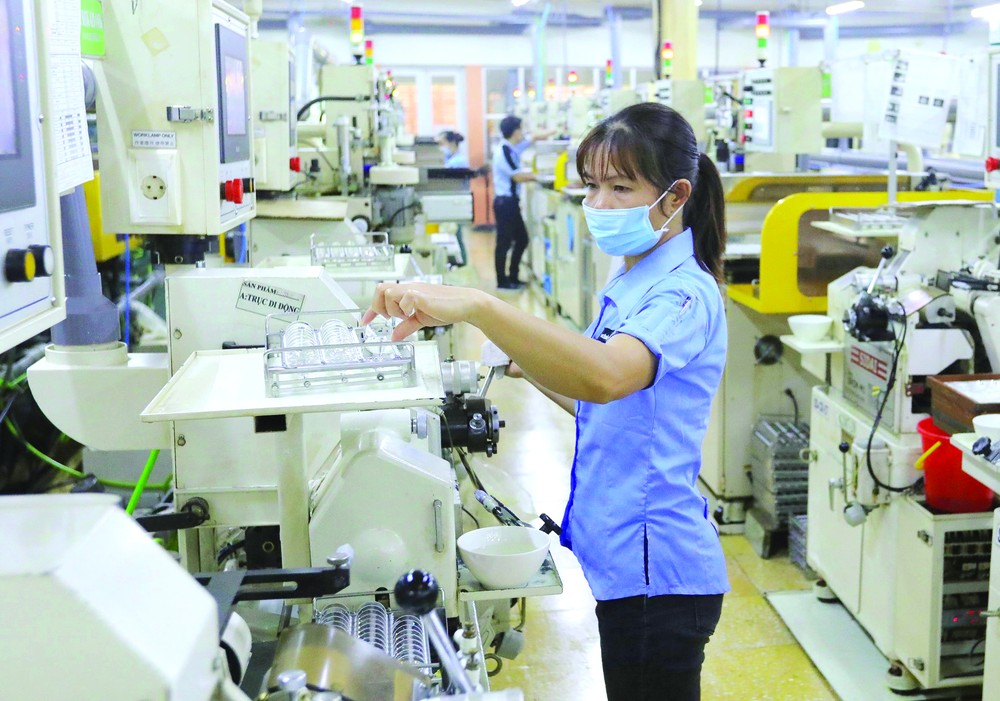
Economists forecast a new wave of investment from US businesses, fueled by improved investment climate, and upgraded infrastructure system. Businesses on every other continent will certainly come to HCMC to seek business opportunities.
Overall, as of December 20, 2023, the total newly registered capital, adjustment and capital contribution, share purchase, and capital contribution purchase of foreign investors reached nearly $36.61 billion across the country. It was an increase of 32.1 percent against the same period in 2022. Capital from foreign investment projects was estimated at about $23.18 billion, an increase of 3.5 percent year on year.
Foreign-invested enterprises have continued to make an important contribution to the country’s trade surplus, macroeconomic stability, and major balances of the economy, and simultaneously provided great support for the international balance of payments.


